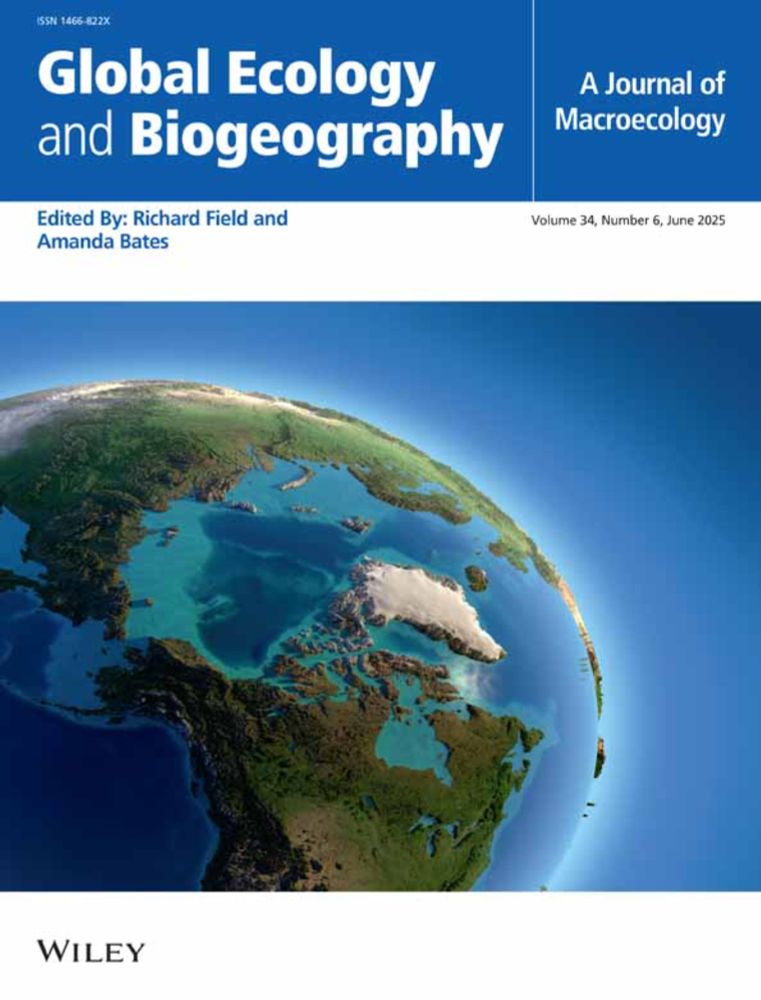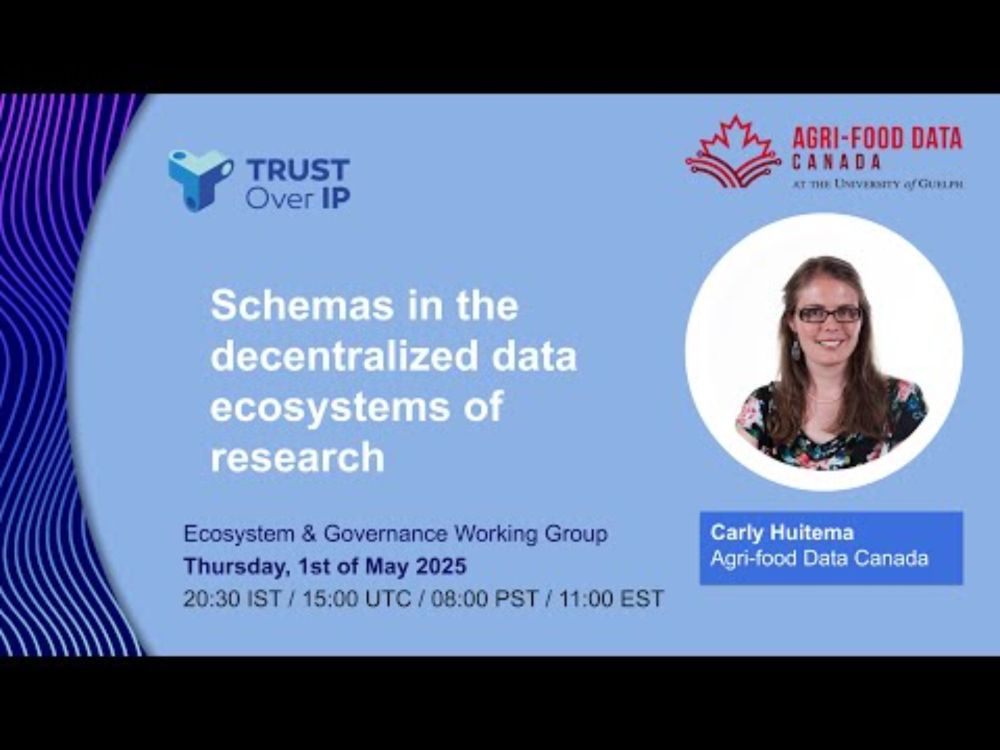At @agrifooddatacan.bsky.social we are building the www.semanticengine.org to help researchers write better metadata schemas. And we also have a data verifier to find those empty data cells.
18.06.2025 10:23 — 👍 0 🔁 1 💬 0 📌 0
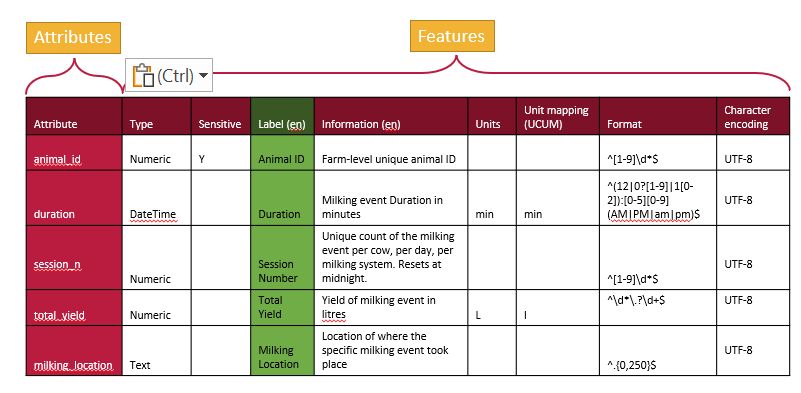
Blog post!
Architecture of OCA Schema Language
- OCA embeds digests (specifically, OCA uses SAIDs)
- OCA is organized by features
agrifooddatacanada.ca/architecture...
26.05.2025 13:30 — 👍 1 🔁 0 💬 0 📌 0
Dryad | Data -- Chilling out: Cooler climates triggered divergence of Sabal (Arecaceae: Coryphoideae: Sabaleae) at the end of the mid-Miocene climatic optimum
Why share data and code? Because you never know when or how it can contribute to future work. In this example, researchers investigate the impact of cooler climates on palms using #opendata and #opencode to create a new analysis🌴🌴🌴
2024 dataset▶️ bit.ly/4kgv0Iu
2024 article▶️ bit.ly/3GRVPVa
13.05.2025 16:36 — 👍 3 🔁 2 💬 1 📌 0
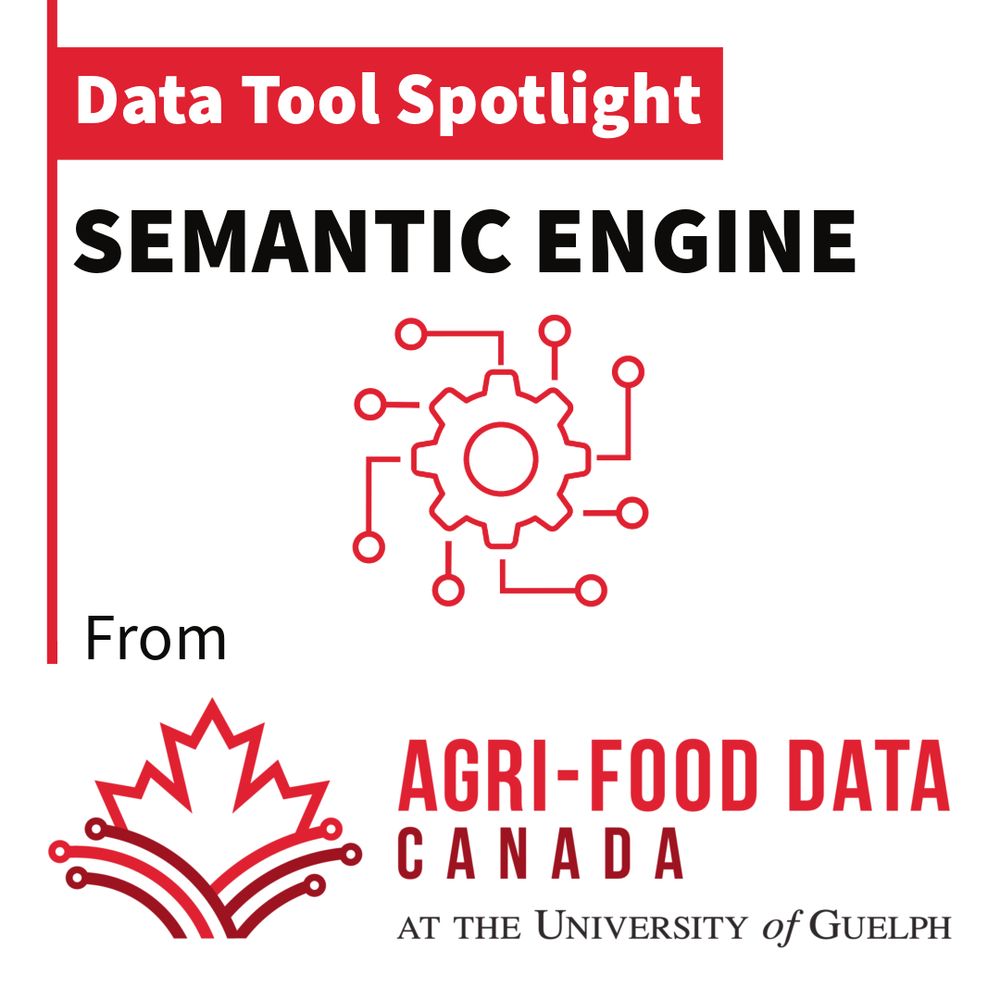
Data Tool Spotlight: Semantic Engine, From Agri-Food Data Canada at the University of Guelph
Much of the data collected by researchers is not easily understandable and usable by others – or even sometimes ourselves! The Semantic Engine, created by the researchers at Agri-food Data Canada @uofguelph.bsky.social is here to help break down these barriers to open science: www.semanticengine.org
06.05.2025 20:25 — 👍 1 🔁 1 💬 1 📌 1
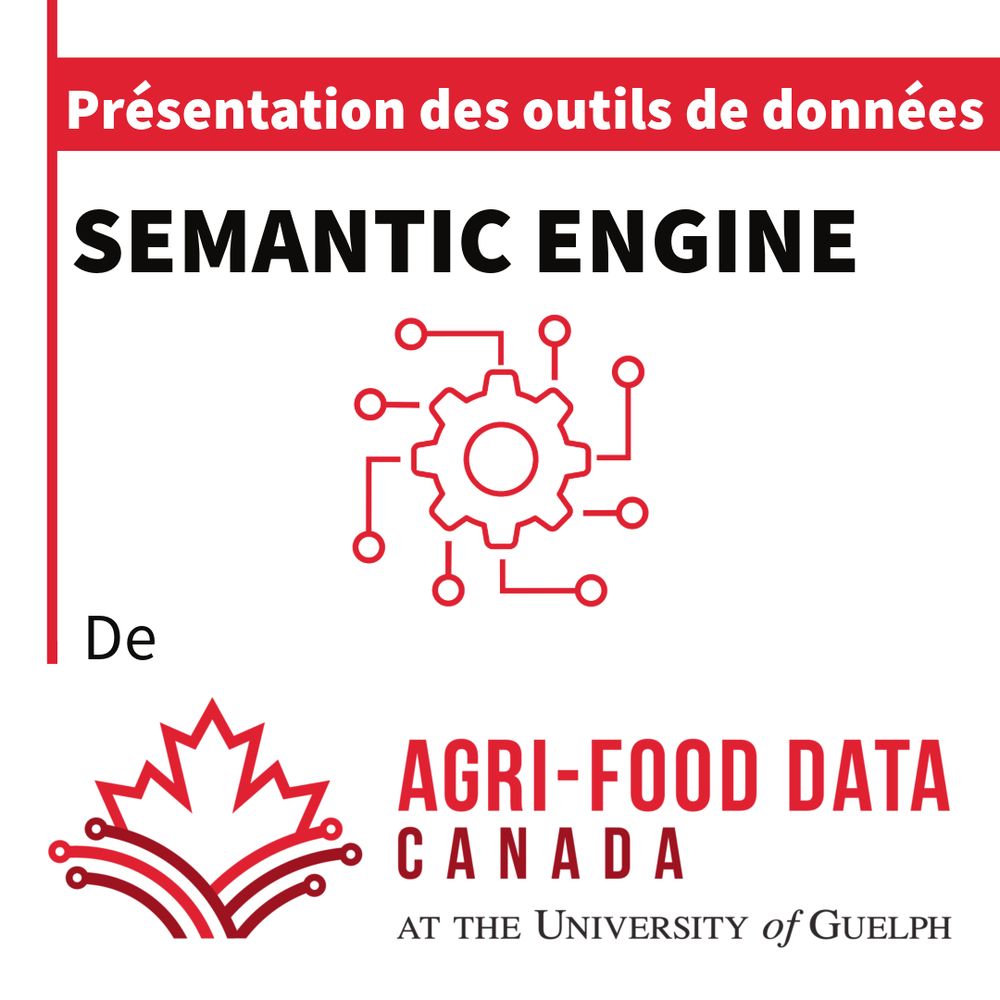
Présentation des outils de données: Semantic Engine, de Agri-Food Data Canada à l'Université de Guelph
La plupart des données recueillies par les chercheurs sont difficiles à comprendre et à exploiter par d'autres, et parfois par nous-mêmes! Le Semantic Engine, créé par les chercheurs de @uofguelph.bsky.social, contribue à éliminer ces obstacles à la science ouverte : www.semanticengine.org
06.05.2025 20:28 — 👍 2 🔁 2 💬 1 📌 0

Supporting your academics and research this semester. Image of the McLaughlin Library in the background.
We're gearing up for the summer semester, U of G! The library has so much to offer students, researchers, faculty and instructors this semester. Read this article to learn about upcoming workshops and programming, appointments, eLearning resources, and more: www.lib.uoguelph.ca/news/support....
06.05.2025 19:50 — 👍 1 🔁 3 💬 0 📌 0
YouTube video by LF Decentralized Trust
20250501 ToIP EGWG AgrifoodDataCanada
ADC's Carly Huitema gave a presentation at the Trust over IP Ecosystem & Governance Working Group meeting this Thursday about schemas.
View the recording at the Linux Foundation Decentralized Trust YouTube channel
www.youtube.com/watch?v=h-NK...
#FAIRdata #DataSharing #AgriData #Metadata
02.05.2025 19:06 — 👍 3 🔁 1 💬 0 📌 0

A colourful melange of fingerprints and faces representing identifiers and identity.
Blog post!
Identifiers and identities
Identity is a combination of both an identifier and associated reputation/authority behind the identity
agrifooddatacanada.ca/identifiers-...
25.04.2025 12:10 — 👍 1 🔁 0 💬 0 📌 1
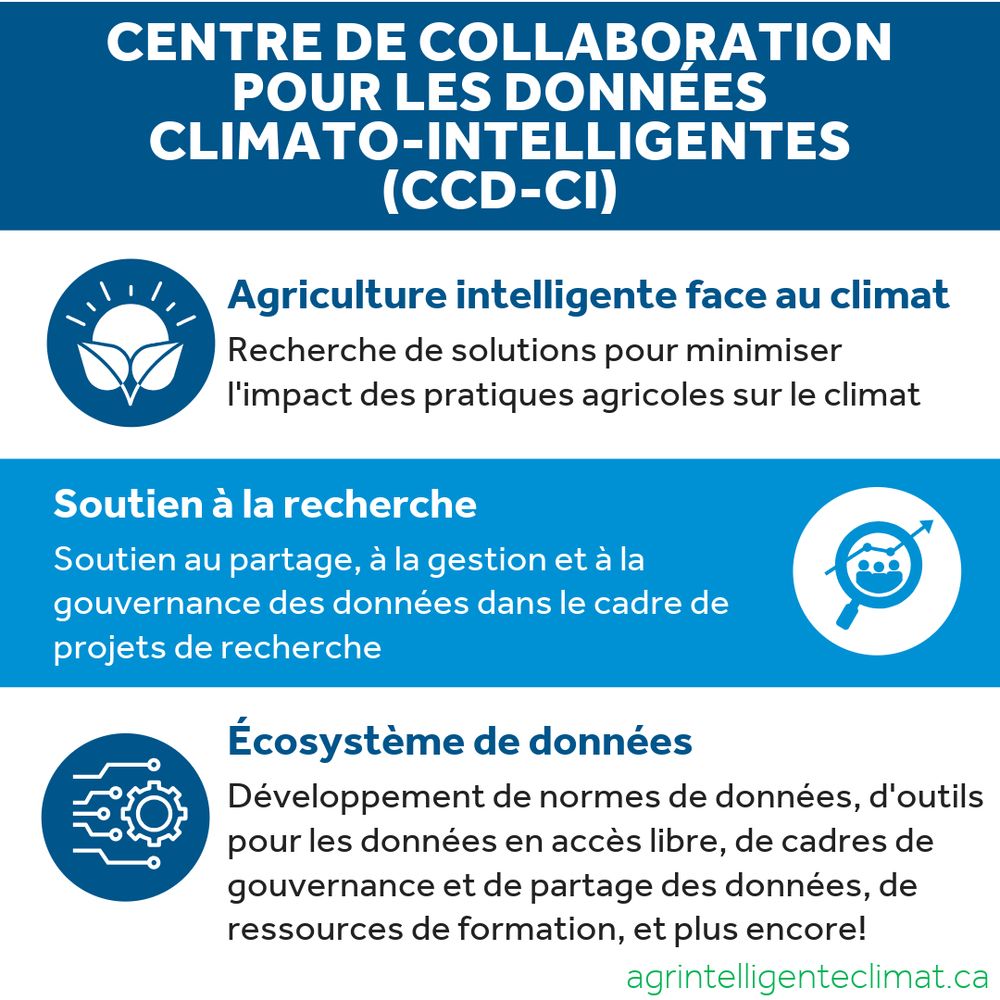
entre de collaboration pour les données climato-intelligentes (CCD-CI). Agriculture intelligente face au climat : Recherche de solutions pour minimiser l'impact des pratiques agricoles sur le climat. Soutien à la recherche : Soutien au partage, à la gestion et à la gouvernance des données dans le cadre de projets de recherche. Écosystème de données : Développement de normes de données, d'outils pour les données en accès libre, de cadres de gouvernance et de partage des données, de ressources de formation, et plus encore!
Voici le CCD-CI! Nous sommes le carrefour sur les données financé par @genomecanada.bsky.social afin d’améliorer la recherche dans les innovations en omique pour une agriculture et des systèmes alimentaires intelligents face au climat.
27.03.2025 16:36 — 👍 1 🔁 2 💬 1 📌 0
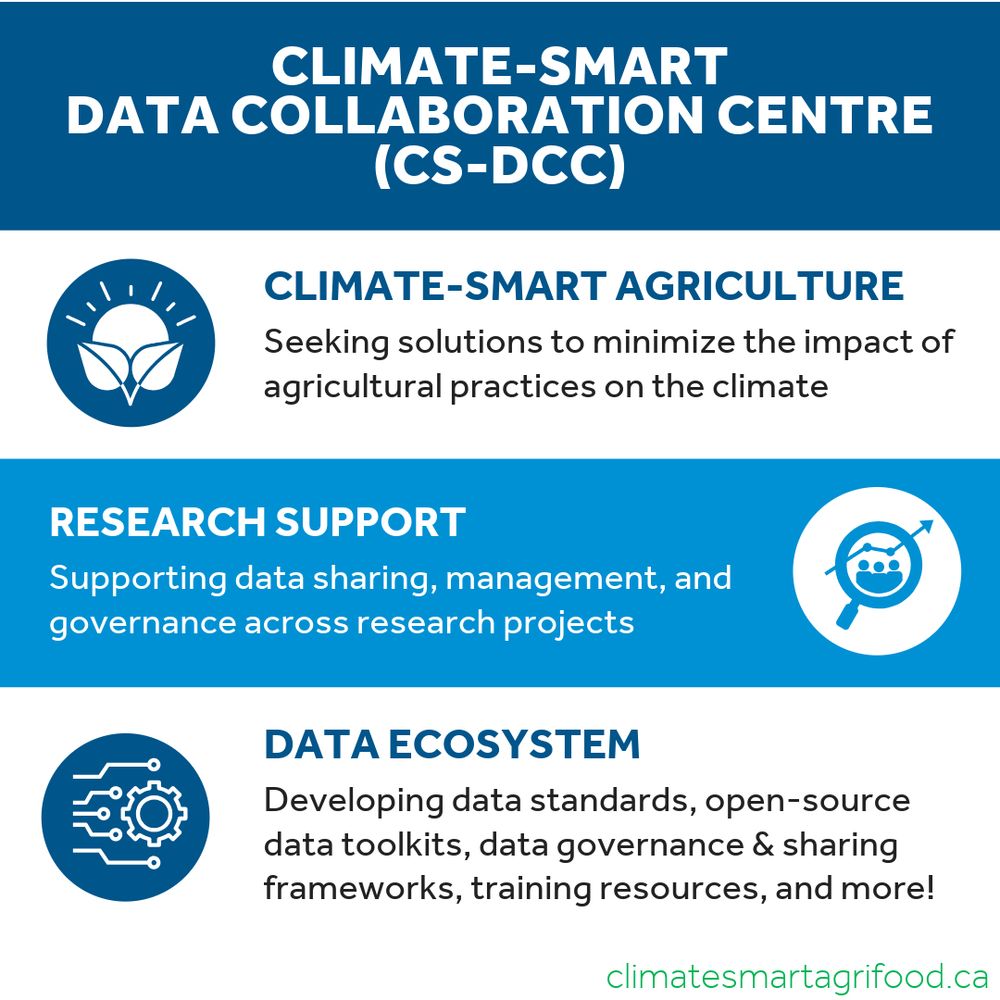
Climate-Smart Data Collaboration Centre (CS-DCC). Climate-Smart Agriculture: Seeking solutions to minimize the impact of agricultural practices on the climate. Research Support: Supporting data sharing, management, and governance across research projects. Data Ecosystem: Developing data standards, open-source data toolkits, data governance & sharing frameworks, training resources, and more! climatesmartagrifood.ca
Introducing the CS-DCC! We are the data hub funded by @genomecanada.bsky.social to enhance omics innovations in climate-smart agriculture and food systems research. Follow us for genomics agriculture news, open-source data processing toolkits, community-developed data standards, training, & more!
27.03.2025 16:36 — 👍 2 🔁 3 💬 1 📌 0
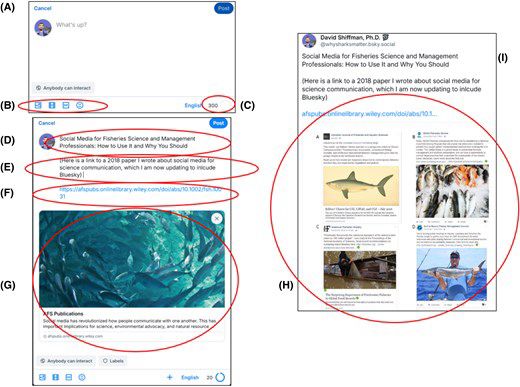
Social media for fisheries science and management professionals: How to use Bluesky and Instagram, and why you should
ABSTRACT. Social media tools have revolutionized how people communicate with one another. A 2018 paper in Fisheries summarized the use of Twitter, Facebook
New paper!
Social media for fisheries science and management professionals: How to use Bluesky and Instagram, and why you should.
This is the *first* paper in the peer reviewed scientific literature to explain how Bluesky works and how to use it for #SciComm 🧪🦑🐠
academic.oup.com/fisheries/ad...
11.04.2025 12:09 — 👍 597 🔁 218 💬 29 📌 14
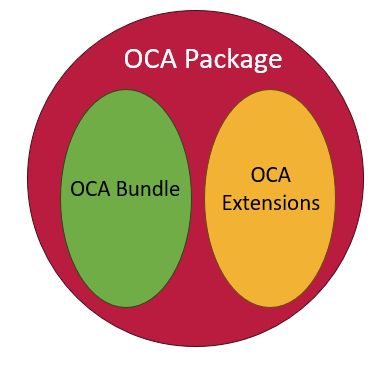
OCA Package structure containing Bundle and Extensions.
Blog post!
Introducing JSON schemas for OCA
The Semantic Engine can continue to consume and use .zip schema bundles but now the default will be to export .json schema packages.
agrifooddatacanada.ca/introducing-...
28.03.2025 15:06 — 👍 0 🔁 0 💬 0 📌 0
The data hub funded by Genome Canada to enhance omics innovations in climate-smart agriculture and food systems research.
Connecting research and researchers. https://linktr.ee/orcid_org
ROR is a global, community-led registry of open persistent identifiers for research organizations. 🦁 Run by @crossref.bsky.social, @datacite.org, & @caldiglib.bsky.social.
#metadata #PIDs #OpenScience #scholcomm
See also https://linktr.ee/researchorgs
The Research Data Alliance builds the social and technical bridges that enable the global, open sharing and re-use of data.
Become a member today: https://www.rd-alliance.org/
Non-profit | Working to advance the right to food for everyone in Newfoundland and Labrador.
Our mission is to increase openness, integrity, and reproducibility of research.
Welcome to #UofG. One of Canada's top comprehensive and research-intensive universities.❤️🖤💛
uoguelph.ca
Associate Prof @ U Guelph. Fungal microbiology and functional genomics (she/her)
Assistant Professor, Integrative ecologist | thermal ecology, biodiversity, seafood & human health. She/her.
https://www.bernhardtlab.org/
Rebanks Family Chair in Pollinator Conservation, Professor at the University of Guelph. 🐝 Studies wild #pollinator #behaviour, #ecology & #conservation. 🦋 🇨🇦🇬🇧 He/him/his https://1in3mouthfuls.org
Evolutionary biologist. Genome size, junk DNA, applied evolution, sci comm, SARS-CoV-2 evolution. Onions have 5x more DNA than you do. He/him.
Assoc. Prof of #Biology at UofG, Guelph, ON, Canada. Inspired by the #Biodiversity in ACG, Costa Rica. #Ecology, #Evolution, #Entomology
Opinions my own & oh so rarely overlap with my employer.
he/him
www.malexsmith.com
www.youtube.com/@Alex_Smith_Ants
Professor | #Education & #Biomimetics | Addicted collaborator | Just-in-time thinker | settler | they/them | EN/FR/SP | Aggressively Helpful |
Thinking a lot about climate adaptation: ManufacturedEcosystems.com for more details about our NFRF
Canadian Prof & Interdisciplinary Researcher: public health & ecological risk assessment, community-engaged software design, pedagogy, digital divide. He/Him. #2SLGBTQIAPlusInSTEM
https://allmylinks.com/the-daniel-gillis
official Bluesky account (check username👆)
Bugs, feature requests, feedback: support@bsky.app
